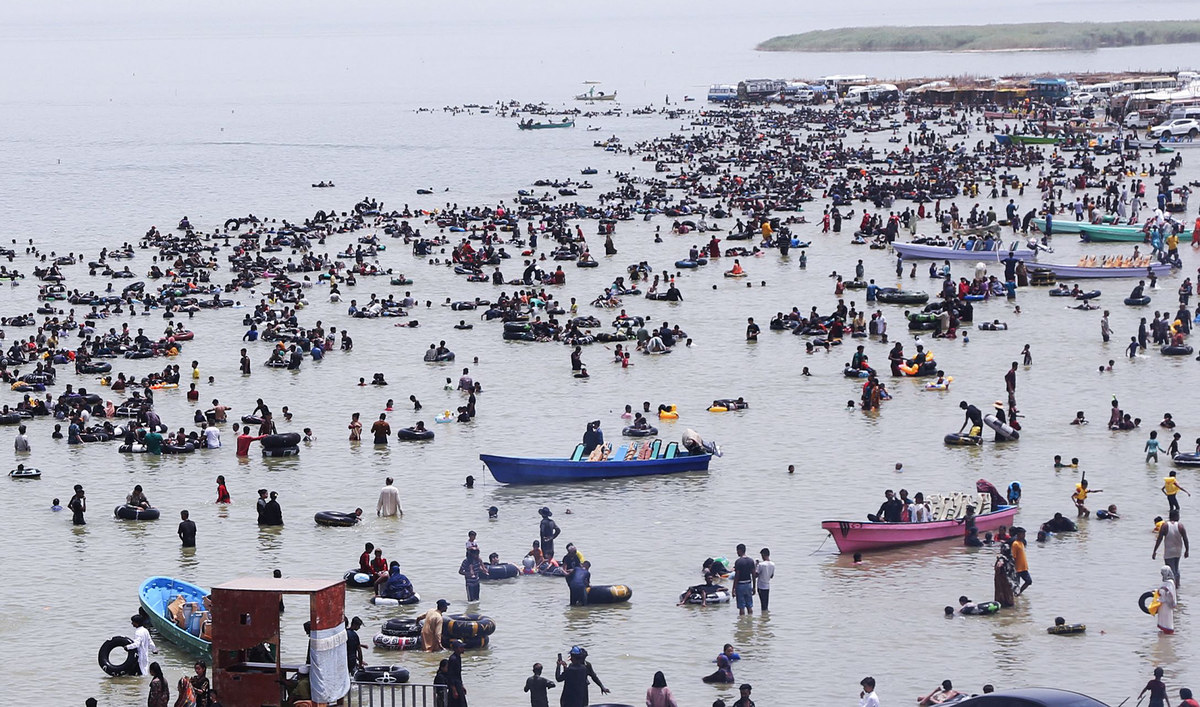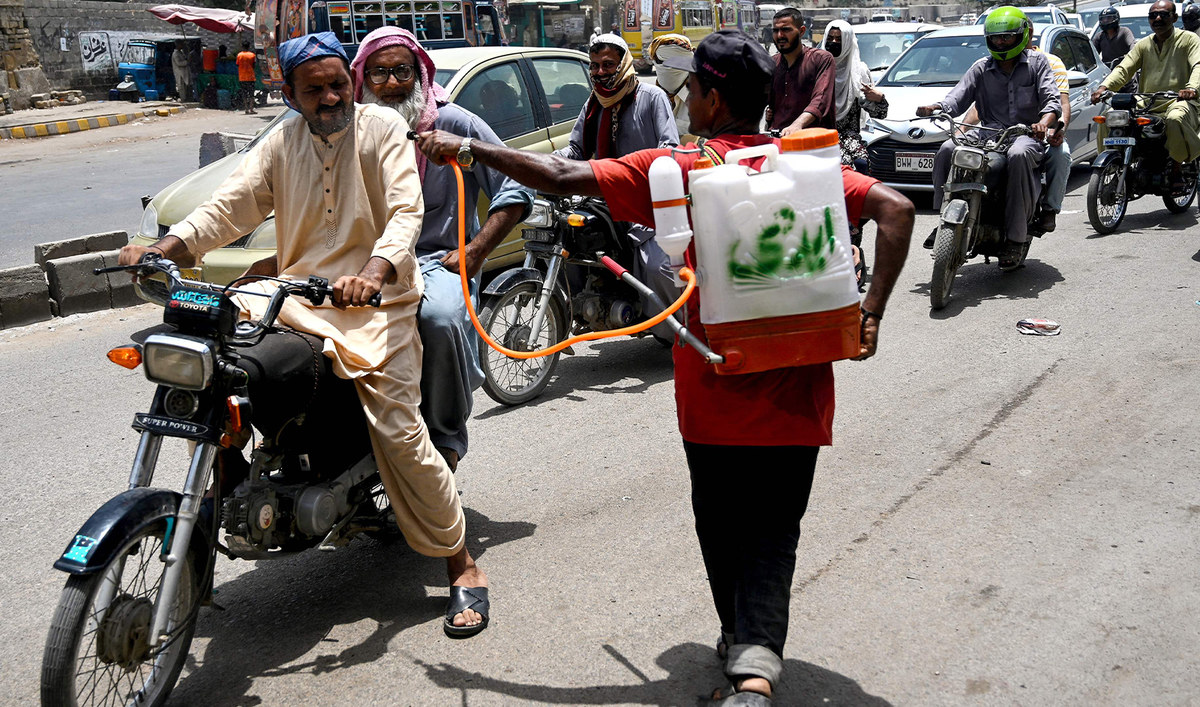KARACHI: Heat wave-like conditions will prevail in Pakistan’s southern port city of Karachi today, Tuesday, the country’s Chief Meteorologist Sardar Sarfaraz said, as the metropolis continues to brave the scorching heat that saw temperatures rise to over 40 degrees Celsius this week.
According to Sarfaraz, Karachi recorded a temperature of 41 degrees Celsius (105.8 degrees Fahrenheit) on Monday. Temperatures last month rose above 52.2 degrees Celsius (125.6 degrees Fahrenheit) in Pakistan’s southern province of Sindh, the highest reading of the summer and close to the country’s record high.
Extreme temperatures throughout Asia over the past month were made worse most likely as a result of human-driven climate change, a team of international scientists have said.
“The heat wave-like situation in Karachi since the past two days will also prevail today,” Sarfaraz told a private news channel. “The temperature can rise to 40 degrees Celsius or above that today.”

Visitors cool off on a hot summer afternoon in Keenjhar Lake, in Thatta district, Sindh province on June 23, 2024. (AFP)
The meteorologist, however, said Karachi was likely to experience a drop in the temperature from Wednesday onwards.
“One or two degrees will drop in Karachi and the temperature will [go as high as] 38 degrees,” he said. “The remaining days of June in Karachi will be like this but the very intense heat that has been prevailing since the past two days, that will decrease.”
Sarfaraz said Karachi was experiencing severe heat due to the presence of a low-pressure weather system near India’s Gujarat city, which suspended the sea breeze to Karachi.
Media reports have claimed that at least 17 people were killed from the sweltering heat in Karachi on Sunday. The head of Pakistan’s largest charitable organization, the Edhi Foundation, told Arab News that from June 21-24, 427 bodies were brought to the Edhi morgue in Karachi.

A volunteer (C) sprays water on commuters to cool off during a hot summer day along a street in Karachi on June 24, 2024. (AFP)
However, he said there was no way of knowing whether these people had died from the heat wave or not.
“The Edhi morgue is full of dead bodies,” Faisal Edhi, the head of the organization, told Arab News. “The routine [of dead bodies daily received] is 30 to 35 bodies.”
Muhammad Zeeshan, a Karachi resident, blames climate change effects for the surge in temperature, and the government for not taking action to protect the people.
“This is happening in Europe, they have faced intense heat but they have taken steps about it,” Zeeshan told Reuters on Monday. “But here, it is sad that government has not taken any effective measures. People are suffering from load shedding (power outages) by the K-Electric (power company) that continues till midnight every day.”
– With additional input from Reuters















